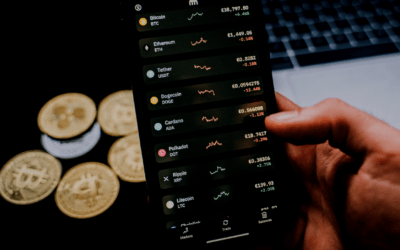If capital gains tax (CGT) is an area which is new to you or you’ve just encountered it following the sale of a property or other asset, then you may want to gain a better understanding of what it is, what it applies to and how you must report and pay for it.
In this article we will cover the essentials of Capital Gains Tax.
Capital Gains Tax in Simple Terms
CGT is a tax on the profit (gain) that you make when ‘disposing’ of an asset that you own. While disposal of an asset usually infers that it’s been sold, it can also mean that it is given away, exchanged for something else, or compensation is received for its loss.
Put simply, CGT is the tax paid on the difference between the value of an item when it was acquired and the value when it was sold.
Generally speaking, CGT only applies to individuals, and this includes sole traders and those in partnerships.
What assets are exempt from Capital Gains Tax?
Many day-today assets (of substantial value) are exempt from CGT which is why you may not have come across it before. The determining factor is usually what the asset was used for, and how much you received when you disposed of it.
For example, any profit (gain) you make from selling your car is exempt so long as the car wasn’t used for business. Your main home (primary residence) that you own is usually exempt too, and so are personal possessions which are sold for less than £6,000.
Examples of other assets which are exempt include:
- Gifts to a registered charity
- Gifts between married and civil partners
- Investments in PEPs or ISAs
- UK government gilts and Premium Bonds
- Competition, betting, lottery, or pools winnings
- Gold, silver, and platinum coins
- Proceeds from life insurance policies
- National Savings & Investments products, child trust funds, and pensions
Capital Gains Tax and Property
The most common instance when people will encounter CGT is during the sale of their home as the potential gain could be quite large.
However, most people won’t be affected by CGT when selling their home as long as the following applies:
- You only have one home, and you’ve lived in it as your main residence for the entire period of ownership
- You haven’t let part of it out (lodgers are allowed)
- Part of your home hasn’t been used exclusively for business purposes (temporary/occasional use of a room is allowed)
- The grounds, including all buildings, are less than 5,000 sq metres in total
- It wasn’t purchased with the intention of making a gain
Note, that if you are liable to CGT as a result of property disposal then you will need to complete and file a 60-day CGT property return.
Capital Gains Tax and other Personal Possessions
Another high value asset for CGT consideration is a car, but again, you won’t be liable for CGT unless it has been used for business purposes.
When it comes to other personal assets, things aren’t so black and white, especially if you have purchased assets as investments.
The types of possessions this is most likely to apply to are paintings, antiques or jewellery. If you sell these items for more than £6,000, then you need to consider whether CGT is due on the gains you have made.
How to Calculate Capital Gains Tax
The key thing to remember about CGT is that it is calculated on the profit made rather than the final value of the asset. Additionally, you can deduct some costs from the gain which reduces the final amount of tax due, and if you are a partner in a business, then you will only need to account for your share of the gain.
Capital Gains Tax Allowances
In much the same way that individuals get a personal tax allowance, there is also a Capital Gains Tax allowance. The 2022/23 Capital Gains Tax Allowance for Individuals is £12,300 and for trusts it is £6,150. This means that, as an individual you will not pay any CGT for gains less than £12,300 in the current tax year. So, let’s say you have total gains of £13,000 in this tax year, you will only pay tax on the amount which exceeds the allowance (in this case £700).
Something to note here, is that you can’t carry forward to the following year if you don’t make use of the allowance when selling your assets.
If you own an asset with another person (such as your husband/wife), then you can both apply your allowances. So, for example, when it comes to the sale of a second home, you are allowed to double the amount you make before CGT is applied. You may also transfer assets between married or civil partners to reduce your CGT liability. (If you do this and subsequently make a gain, then the amount of CGT owed is based on the total time you owned the asset)
Capital Gains Tax Rates
The amount of CGT that you will need to pay is determined by what the asset is (residential property vs other assets), but also whether you are a basic or higher/additional rate taxpayer.
In the 2022/23 tax year, the basic rate threshold is £37,000. So, if your total income for the year exceeds this, you will pay CGT at the higher rate for the portion above the threshold.
The table below illustrates these variations across types of assets as well as taxpayer rates for the current tax year.
| Basic Rate Taxpayers | Higher Rate Taxpayers | |
| Gains from other residential property | 18% | 28% |
| Gains from other chargeable assets | 10% | 20% |
Can I deduct a loss from my CGT bill?
One piece of good news is that, should you make a loss on the sale of an asset, you can offset the loss against your profits when calculating your total CGT liability. You can also carry forward any losses that you haven’t used to offset your gains, into the next tax year. Therefore, it’s important to include your losses on your returns, even in a tax year when you haven’t made any gains and CGT isn’t due, as you can take advantage of the loss in future years.
Do Businesses pay Capital Gains Tax?
Firstly, if a business is a limited company, then it won’t be necessary to pay Capital Gains Tax. In place of CGT, the company will need to pay Corporation Tax on any gains.
However, if you operate as a sole trader or partnership, as there is no legal distinction between you and your business, any gains from the business, are treated as ‘yours’. These gains will need to be included in your Self-Assessment tax return.
There are two different types of assets that a business may have and these are ‘current assets’ and ‘fixed assets’.
Current assets
Current assets are used for trading, and they often include things like stock (sold to customers), raw materials, or working capital.
From a tax and accounting perspective, it is viewed that these will be used up within the next 12 months. As they are short-term in nature and considered to be a key component in the trading of the business, should the business make a profit from their sale, they will pay tax in the usual way.
Fixed assets
Fixed assets on the other hand are long-term in nature and likely exist for more than a year. These are therefore the assets which will be subject to CGT. These assets could be physical items of equipment for example, but equally they could be intangible assets such as brands, trademarks, or shares in other companies.
CGT relief for Businesses
Schemes such as Business Asset Disposal Relief, may allow you to claim for gains made through your business. This scheme is just one of the schemes available and rates of relief and eligibility criteria across the schemes varies, so this would need to be considered in more detail or professional advice sought.
What about Cryptocurrency and Capital Gains Tax?
For anyone who has invested in cryptocurrency, you only need to consider CGT liability at the point at which you trade it for other cryptocurrency or convert it into pounds sterling. Until this point, you will not be affected by CGT as it is effectively unrealised gains.
Once it has been realised however, the annual CGT allowance is applied, and the profits are calculated based on the gains made between the purchase of the cryptocurrency and the subsequent sale of it. Find out more about cryptocurrency taxation.
Need further support with Capital Gains Tax?
If you have multiple assets, then calculating your CGT liability can get complicated. By enlisting the support of an experienced tax advisor, you will be best placed to correctly report on your gains (or losses) and to take advantage of applicable allowances and reliefs. The team at Kingston Burrowes are always happy to help should you need support, so please get in touch.




